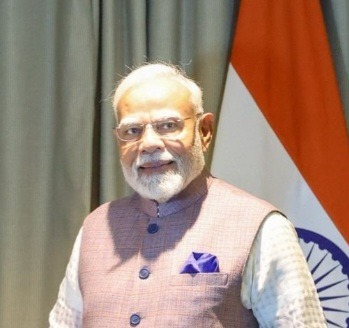
“The Waqf (Amendment) Bill aims to bring transparency, accountability, and social justice to the management of Islamic charitable endowments.” “While the government defends the bill as a step toward inclusive growth, the Opposition raises concerns over its impact on minority rights.”
The controversial Waqf (Amendment) Bill, which seeks comprehensive reforms in the management of Islamic charitable endowments, was approved in the Rajya Sabha after an extensive debate, leading to a stark divide between the ruling government and the opposition. The bill was approved with 128 votes in support and 95 votes in opposition.
Prime Minister Narendra Modi hailed the bill’s passage as a “watershed moment” in the country’s pursuit of socio-economic justice, transparency, and inclusive growth. In a post on X, he remarked, “For decades, the waqf system was synonymous with lack of transparency and accountability. This especially harmed the interests of Muslim women, poor Muslims, and pasmanda [backward] Muslims. The legislation passed by Parliament will boost transparency and also safeguard people’s rights.”
The government insists that certain Muslim sects and underprivileged communities were not adequately represented in waqf boards, and denies accusations of undermining Muslims’ rights. According to the government, the new legislation will streamline the management of waqf properties, ensuring they benefit the poor, deprived, and women more effectively. Modi emphasized, “We will now enter an era where the framework will be more modern and sensitive to social justice.”
He also expressed gratitude to lawmakers for their participation in the discussions and thanked the public for providing input. “A special thanks also to the countless people who sent their valuable inputs to the parliamentary committee. Modi stated, “Once again, the significance of thorough debate and dialogue has been reinforced.”
Union Minister for Minority Affairs Kiren Rijiju responded to the debate by emphasizing that the government had incorporated recommendations from a Joint Parliamentary Committee (JPC) into the bill. He also raised a question about the Opposition’s authority to speak on Muslim welfare. “We cannot do work based on religion. We have to look at everybody as an Indian citizen,” Rijiju stated, asserting that the bill would help address poverty among Muslims in India.
Rijiju further noted that the waqf system must be handled with care, as it pertains to pious donations. “Once a waqf is created, it cannot be reversed. Therefore, it should be done after proper thinking. It is for a pious, religious, charitable work,” he added.
The bill, which also passed in the Lok Sabha after a 12-hour debate, with 288 votes in favor and 232 against, will now be sent to President Droupadi Murmu for approval. This legislation represents the second significant law related to Muslims, following the ban on triple talaq.
BJP Chief JP Nadda defended the bill, stating that its purpose was solely to reform the management of waqf properties. He criticized the Opposition for distorting the bill’s intent and highlighted that government properties were misused in the past as waqf assets. Nadda also pointed out incidents in Karnataka and Kerala where government properties were wrongly designated as waqf properties.
Opposition leader Mallikarjun Kharge of the Congress Party accused the BJP of attempting to take away minority rights, claiming that the bill was being rushed through Parliament despite gaps and deficiencies. “Waqf is about donation and not about amassing money,” he stated.
Former Prime Minister HD Deve Gowda, a member of the NDA, supported the bill, asserting that it aimed to protect donor properties from being misused by vested interests. He explained that waqf properties were worth ₹1.29 lakh crore and emphasized the importance of preserving their intended charitable purpose.
Nationalist Congress Party (NCP) leader Praful Patel criticized the Opposition’s alignment with the Shiv Sena (UBT), referencing past actions that clashed with the party’s current stance.
While the Biju Janata Dal initially opposed the bill, it later refrained from issuing a whip for voting. The Yuvajana Sramika Rythu Congress Party and Samajwadi Party also expressed their opposition, raising concerns over the bill’s implications on secularism and the rights of Muslims.
Rashtriya Janata Dal’s Manoj Jha and Communist Party of India (Marxist) leader John Brittas voiced strong criticisms, questioning the bill’s potential to undermine India’s secular constitution.
Finance Minister Nirmala Sitharaman responded to critiques from the Opposition, comparing religious trust reforms in Tamil Nadu and other regions, emphasizing the government’s role in overseeing these systems.
The amended Waqf Bill introduces several key changes, including removing the “waqf by user” provision and allowing women, Shia sect members, and government officials to be included in waqf boards. It also grants authority to senior officials to determine if a government property belongs to a waqf and restricts donations to waqf from those who have practiced Islam for at least five years.
Following fierce opposition, a 31-member JPC reviewed the bill, and although all Opposition members submitted dissent notes, 14 of their recommendations were incorporated into the final version.
This legislation marks a significant shift in the management and governance of waqf properties in India, with ongoing debates about its implications for secularism and the rights of the Muslim community.

